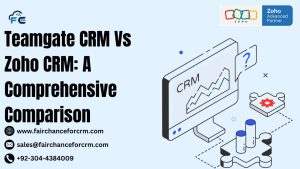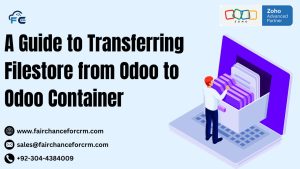Odoo Enterprise is a powerful, integrated suite of business applications designed to cater to the needs of businesses of all sizes. It is the premium version of Odoo, offering additional features, support, and services compared to the community edition. With Enterprise, businesses gain access to advanced functionality in areas such as CRM, accounting, sales, inventory, human resources, manufacturing, and more.
In this article, we will explore the key features and benefits of Odoo Enterprise, its pricing structure, and how it can be used to optimize business operations.
Also Read:
- Odoo Asset Management: A Comprehensive Guide
- Odoo Debug Extension: A Comprehensive Guide to Debugging Odoo Applications
- Odoo Studio: A Comprehensive Guide to Customizing Your Odoo Experience
- Maximizing Workforce Efficiency with Zoho Workerly
- Zoho Valuation: Understanding the Success of Software Giant
1. What is Odoo Enterprise?
Odoo is an all-in-one business management solution that integrates a variety of essential business applications into a single platform. These applications cover a wide range of business functions, from managing customer relationships to handling financial accounting and everything in between.
While the Odoo Community Edition is open-source and free to use, Odoo Enterprise offers additional features and tools that are specifically designed to meet the needs of larger businesses or businesses that require advanced functionality. Odoo is a paid version, and it offers significant benefits in terms of usability, flexibility, scalability, and support.
Key Features of Odoo Enterprise:
- Advanced Modules: Odoo provides more sophisticated features in areas like eCommerce, manufacturing, accounting, project management, HR, and point of sale.
- User Interface Improvements: Odoo offers an enhanced user interface (UI) compared to the Community Edition, making the system easier to navigate and use.
- Mobile Apps: Odoo includes mobile applications for iOS and Android, enabling users to access their data and manage their business operations on the go.
- Cloud Hosting: While you can self-host Odoo, Odoo provides an optional cloud hosting solution, which ensures the platform is always up to date and supported by Odoo’s team.
- Increased Performance: With Odoo, businesses get access to more powerful features, including advanced reporting, performance optimization, and better scalability.
- Support and Maintenance: Odoo users receive professional support and maintenance from Odoo’s dedicated team, including regular updates, security patches, and bug fixes.
2. Odoo Enterprise vs. Odoo Community Edition
While both Odoo Community and Odoo offer a comprehensive suite of tools, there are several key differences between the two versions. Below is a comparison to help businesses understand what Odoo provides over the Community Edition:
| Feature | Odoo Community | Odoo Enterprise |
|---|---|---|
| Cost | Free (Open Source) | Paid (Subscription-based) |
| Mobile Apps | Not Available | Available (iOS & Android) |
| Support | Community Support | Dedicated Professional Support |
| Accounting Features | Basic | Advanced (full accounting suite) |
| User Interface | Basic | Enhanced, more polished UI |
| Customization | Limited | More customization options |
| Cloud Hosting | No | Yes (official hosting options) |
| Performance | Basic | High performance and optimization |
| Enterprise-Grade Features | Not Available | Available (e.g., advanced manufacturing, HR, etc.) |
Why Choose Odoo Enterprise Over Community?
- More Features: Odoo includes additional modules and advanced features that make it a better option for large-scale businesses or businesses with more complex needs.
- Support and Maintenance: With Odoo, you get access to direct support from Odoo’s professional team, ensuring your system remains updated and running smoothly.
- Scalability: Odoo is more scalable, offering tools that help you grow your business without running into limitations.
- Better User Experience: The premium version offers a more polished and user-friendly interface, making it easier for employees to use the system efficiently.
3. Key Modules in Odoo Enterprise
Odoo includes a wide variety of integrated business applications that allow businesses to manage and optimize almost every aspect of their operations. Some of the most popular modules in Odoo include:
a) Accounting & Finance
Odoo’s accounting module in the Enterprise version is robust, featuring advanced accounting capabilities, such as multi-currency support, invoicing, reporting, tax management, and bank synchronization. These features help businesses manage their finances more efficiently and ensure compliance with accounting standards.
b) Customer Relationship Management (CRM)
The CRM module in Odoo is designed to help businesses track leads, manage customer interactions, and close deals. It includes advanced features such as pipeline management, email marketing, opportunity tracking, and reporting.
c) Inventory Management
Odoo’s inventory module allows businesses to manage their warehouse operations effectively, including stock levels, product locations, reordering rules, and stock valuation. Odoo also integrates seamlessly with barcode scanners for automated stock management.
d) Manufacturing
Odoo Enterprise offers an advanced manufacturing module that helps businesses manage production processes, control stock, schedule work orders, track work centers, and monitor production efficiency. It’s an ideal solution for companies in the manufacturing sector.
e) Human Resources (HR)
The HR module in Odoo includes a variety of features for managing employees, payroll, recruitment, timesheets, leave management, and performance evaluations. It also supports expense management and employee contracts.
f) Project Management
Odoo’s Project Management module allows teams to collaborate, track tasks, manage projects, and schedule deadlines. It includes tools for Gantt charts, timesheets, invoicing, and project-related reporting.
g) Point of Sale (POS)
The Odoo POS module integrates seamlessly with physical retail locations, enabling businesses to manage sales transactions, process payments, track stock, and generate receipts. The Odoo POS system works both online and offline, making it ideal for businesses in retail and hospitality.
h) Website and eCommerce
With Odoo , you can create fully integrated websites and online stores. Odoo’s website builder is user-friendly and comes with features like product catalogs, shopping carts, checkout pages, and payment gateway integration. The eCommerce module also integrates with Odoo’s inventory, CRM, and accounting systems.
i) Marketing Automation
The Marketing Automation module in Odoo allows businesses to create and automate marketing campaigns. Features include email marketing, lead nurturing, segmentation, and A/B testing.
4. Odoo Enterprise Pricing
The pricing for Odoo is based on the number of users and the modules selected. Odoo uses a subscription-based pricing model, and the cost can vary depending on the size and needs of your business.
Here’s a breakdown of the typical Odoo pricing structure:
- User Subscription Fees: Odoo charges a subscription fee per user. The cost per user generally depends on the modules you choose and the number of users that will access the system.
- Module Fees: Some advanced modules, such as Manufacturing, Accounting, or eCommerce, are priced separately and may incur additional fees.
- Cloud Hosting Fees: If you opt for Odoo’s cloud hosting service, there may be an additional cost for server hosting, data backups, and maintenance.
Pricing is typically quoted on a case-by-case basis, so businesses interested in Odoo are advised to contact Odoo for a personalized quote.
5. Odoo Enterprise Implementation
Implementing Odoo involves several key steps:
- Requirements Gathering: Understand your business processes and determine the modules needed for your operations.
- System Setup: Install and configure Odoo, selecting the relevant modules and setting up user permissions.
- Customization: Customize the system to fit your specific business needs, which may involve integrating with other software, creating custom reports, or modifying workflows.
- Training: Provide training to your employees to ensure they understand how to use the system effectively.
- Go Live: Transition from your existing systems to Odoo and begin using it for daily operations.
- Ongoing Support: Utilize Odoo’s support services to ensure that your system runs smoothly and is kept up to date with the latest features.
6. Conclusion
Odoo Enterprise is a comprehensive business management solution that provides advanced functionality across various business operations. Whether you are a small business looking to expand or a large enterprise in need of an all-in-one platform, Odoo offers scalability, flexibility, and advanced features to help streamline and optimize your business processes.
With its rich set of modules, integrated applications, cloud hosting options, and dedicated support, Odoo is a powerful tool for businesses looking to improve efficiency, reduce costs, and foster growth.
If you’re considering Odoo , it’s recommended to evaluate your business needs and choose the right modules and services to get the most out of your subscription.
For more information about the Odoo Enterprise: visit this link.
If you want to Free Trail Zoho, click on this link.




